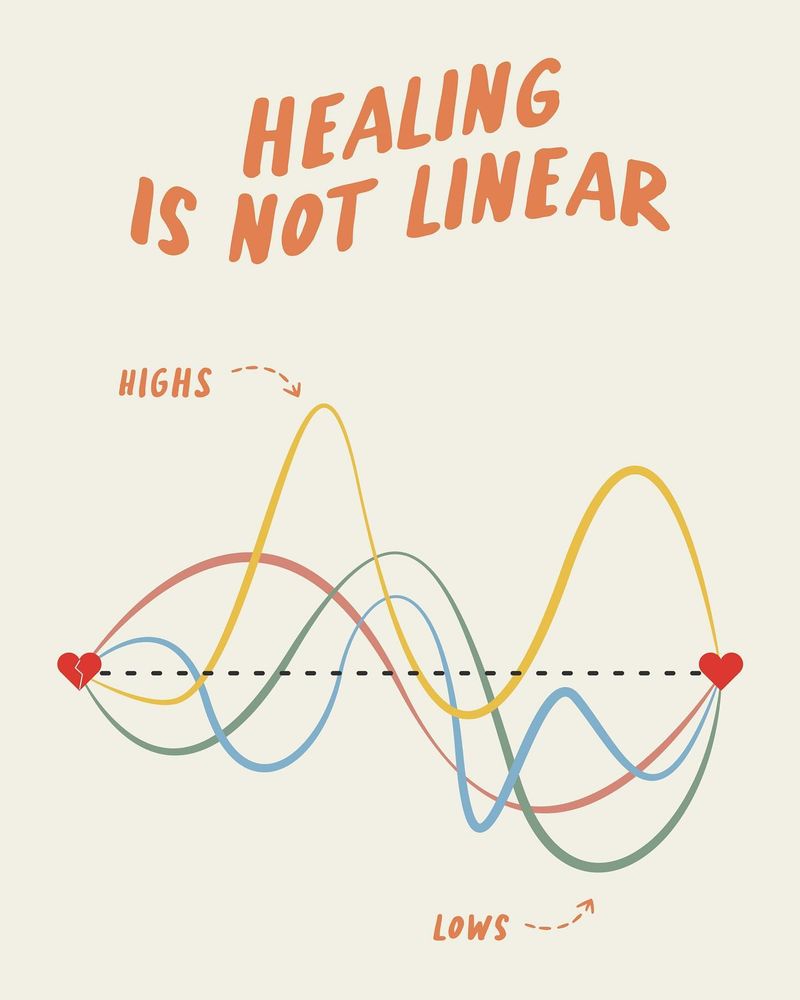Freshly Dumped? Don’t Even THINK About Doing These 17 Things!
Breakups can be rough, but how you handle them can make all the difference. When emotions are running high, it’s easy to make decisions you’ll regret. This guide is here to help you navigate this challenging time with grace and dignity.
Avoid these common post-breakup pitfalls to ensure your journey to healing is as smooth as possible. Remember, taking care of yourself is the priority. Let’s explore what NOT to do after a breakup!
1. Don’t Beg for Closure That Won’t Come

Closure is like chasing the horizon—always just out of reach. You might think one last conversation will tie up loose ends, but you often end up more entangled. Instead, focus on accepting what is and finding peace within. Accept that closure is sometimes a personal journey, not a joint discussion.
The need to understand every detail can keep you stuck. Letting go of this desire can be liberating. Begin by writing your thoughts in a journal. This can be cathartic and provide the clarity you seek without needing external validation.
Remember, closure doesn’t always come from the outside. It often emerges from within when you give yourself the space to heal.
2. Don’t Stalk Their Social Media

In the digital age, it’s tempting to check in on your ex’s online life. However, this habit can be more harmful than helpful. It’s like picking at a wound that’s trying to heal. Avoid the trap of comparing your journey to theirs based on curated snapshots of life.
Instead, consider detoxing from social media, at least for a while. Use this time to focus on yourself and rediscover interests that bring you joy. This break can help reduce anxiety and provide space for genuine healing.
Remember, your worth isn’t determined by their social feed. Embrace the freedom of living life on your terms, away from the virtual gaze.
3. Don’t Send the “I Miss You” Text

Sending that late-night text may seem like a good idea, but it rarely ends well. It’s easy to mistake loneliness for a need to reconnect. Instead, resist the urge to reach out and remind yourself why the relationship ended in the first place.
Focusing on self-care when you feel the urge to text can be beneficial. Try writing a letter you don’t send or talk to a friend instead. These actions can provide the comfort you seek without complicating matters.
Remember, those feelings of missing someone can often be addressed by nurturing the relationship you have with yourself. Prioritize your growth and emotional health above temporary feelings.
4. Don’t Trash Talk to Mutual Friends

Venting your frustrations to mutual friends might feel good in the moment, but it often backfires. It can put your friends in an uncomfortable position and distort the story. Instead, seek out friends who aren’t connected to your ex or journal your feelings privately.
When you share your side, consider the long-term impact. Maintaining dignity and respect can help preserve friendships and ensure you don’t alienate those who care about you. Choose conversations that promote healing and understanding.
Remember, the breakup is between you and your ex, not the entire friend group. Protect your relationships by keeping certain details private and focusing on your healing journey.
5. Don’t Make Major Life Changes Overnight

Breakups can trigger the urge to shake things up with big life changes. While change can be positive, impulsive decisions often lead to regret. Instead, give yourself time to think things through. A clear mind makes better choices.
Reflect on whether you’re making changes for the right reasons. It’s okay to want a fresh start, but ensure it’s a decision rooted in self-growth rather than escapism. Consider seeking advice from a trusted mentor or friend.
Remember, slow and steady wins the race. Allow yourself to process emotions before diving into new ventures. This patience can lead to more meaningful and lasting transformations.
6. Don’t Compare Yourself to Their New Person

Seeing your ex move on can sting, but comparisons only deepen the wound. Each person’s journey is unique, and what worked for them might not work for you. Instead, focus on your strengths and what makes you special.
Redirect your energy towards self-improvement and personal goals. Celebrate your achievements and growth, no matter how small they may seem. This positive focus can help diminish feelings of inadequacy.
Remember, self-worth isn’t measured by someone else’s standards. Embrace your individuality and the qualities that make you, you. Confidence in your path can lead to genuine happiness and fulfillment.
7. Don’t Pretend You’re Fine When You’re Not

Wearing a brave face might seem like the right approach, but it can hinder healing. Authenticity allows you to process emotions naturally. Instead of bottling up feelings, find healthy outlets to express yourself.
Consider talking to a therapist or joining a support group. Sharing experiences with those who understand can provide relief and foster personal growth. It’s okay to not be okay, and seeking help is a sign of strength.
Remember, healing is a journey, not a destination. Give yourself permission to feel and explore those feelings in a supportive environment. This openness paves the way for true recovery and inner peace.
8. Don’t Turn Every Song Into a Personal Attack

Music can stir emotions, and after a breakup, every lyric might feel personal. However, assigning meaning to every song can intensify emotions unnecessarily. Instead, choose tunes that uplift and inspire.
Create a playlist that resonates with your current journey towards healing. Discover new artists or genres that spark joy and motivate self-reflection. Music’s power can be harnessed positively.
Remember, not every song is about you. Let melodies be a source of comfort rather than a reminder of pain. Allow music to accompany you on your path to self-discovery and emotional resilience.
9. Don’t Rush Into Another Relationship to Prove a Point

Jumping into a new relationship might seem like a quick fix, but it’s often a band-aid on a deeper wound. Rebound relationships can complicate emotions and delay true healing. Instead, focus on rediscovering yourself.
Enjoy the freedom of being single and explore interests that may have been neglected. Building a strong sense of self is crucial before sharing your life with someone new. This independence fosters healthier future relationships.
Remember, love finds you when you’re ready. Respect your healing process and trust that the right connection will come at the right time. Embrace this period as an opportunity for personal growth and renewal.
10. Don’t Re-Read Old Messages on Loop

Scrolling through past messages can feel comforting, but it often keeps you anchored in the past. Nostalgia can distort memories, making it harder to move forward. Instead, focus on the present and future.
Consider deleting or archiving messages to resist the temptation. This act can be symbolic of letting go. Channel emotions into creative outlets like writing or art, which can serve as healthy expressions of your journey.
Remember, memories belong to a time that’s no longer here. Cherish the good ones, but don’t dwell. Letting go of the past opens doors for new experiences and personal growth.
11. Don’t Rehearse Arguments in Your Head

It’s easy to get caught up in replaying old arguments, imagining the perfect comeback. However, this mental loop adds stress without resolution. Instead, shift focus to activities that engage and uplift you.
Engage in mindfulness practices like meditation or yoga to center your thoughts. Redirect energy to hobbies or goals that nurture your soul. These strategies can break the cycle of rumination and foster peace.
Remember, the past is unchangeable. Acceptance is key to moving forward with grace. Let go of the need to win unresolved battles and channel that energy into creating a fulfilling present.
12. Don’t Punish Yourself for Caring

Experiencing love and loss is part of the human experience. Beating yourself up for caring prolongs healing. Instead, honor your emotions and recognize the strength in vulnerability.
Self-compassion is vital. Practice kindness towards yourself as you would a friend. Reflect on the lessons learned from the relationship and how they contribute to your personal growth.
Remember, caring isn’t a weakness. It’s a testament to your capacity for love. Embrace it as a valuable part of your journey. Forgiveness and understanding pave the way to a heart that heals and flourishes.
13. Don’t Ghost Your Own Support System

In times of emotional turmoil, it’s easy to withdraw from those who care. However, isolating yourself can lead to feeling even more alone. Instead, lean on your support network to navigate the healing journey.
Reach out to friends or family who understand and uplift you. Sharing your thoughts and feelings can be incredibly cathartic. These connections provide a sense of belonging and reassurance.
Remember, you don’t have to go through this alone. Embrace the love and support available to you, and let it be a guiding light towards emotional recovery and strength.
14. Don’t Try to Be the “Cool Ex” Just to Stay Connected

Being the “cool ex” might seem like a way to stay in your ex’s life, but it often delays healing. Pretending you’re okay with casual encounters can be emotionally taxing. Instead, set boundaries that support your well-being.
Focus on your needs and prioritize self-respect. It’s okay to step back from interactions that don’t serve you. Use this time to explore new relationships that align with your values.
Remember, self-preservation is more important than maintaining an image. True strength lies in honoring your feelings and making decisions that foster genuine growth.
15. Don’t Forget That Healing Isn’t Linear

Healing is a journey with ups and downs. Expecting a straight path can lead to disappointment. Instead, embrace the twists and turns as part of the growth process.
Celebrate small victories and be patient with setbacks. They are natural and often lead to greater understanding of yourself. Use each step as a learning opportunity.
Remember, progress isn’t always visible, but it’s there. Trust that every experience contributes to your resilience. Embrace the journey and allow it to shape a stronger, wiser version of yourself.
16. Don’t Let Bitterness Become Your Identity

Holding onto bitterness can be like carrying extra baggage. It weighs down your heart and dampens your spirit. Instead, strive to release resentment and find joy in the present.
Practice gratitude by focusing on the positive aspects of life. This shift in perspective can lighten emotional burdens. Surround yourself with positivity and seek experiences that affirm your worth.
Remember, bitterness is a choice. Choose to let go and embrace the happiness within reach. Your identity is shaped by how you rise above challenges, not by the scars they leave behind.
17. Don’t Forget You Deserve More Than Just “Okay”

Settling for mediocrity is a disservice to yourself. In love and life, you deserve fulfillment and joy. Instead, aim higher and pursue dreams that ignite your passion.
Visualize the future you desire and take steps to achieve it. Surround yourself with people who inspire and challenge you. This positive environment can propel you towards greatness.
Remember, true happiness comes from within and from pursuing what truly matters. Believe in your potential and never settle for less. Your journey is your own, and it’s worth making it remarkable.







